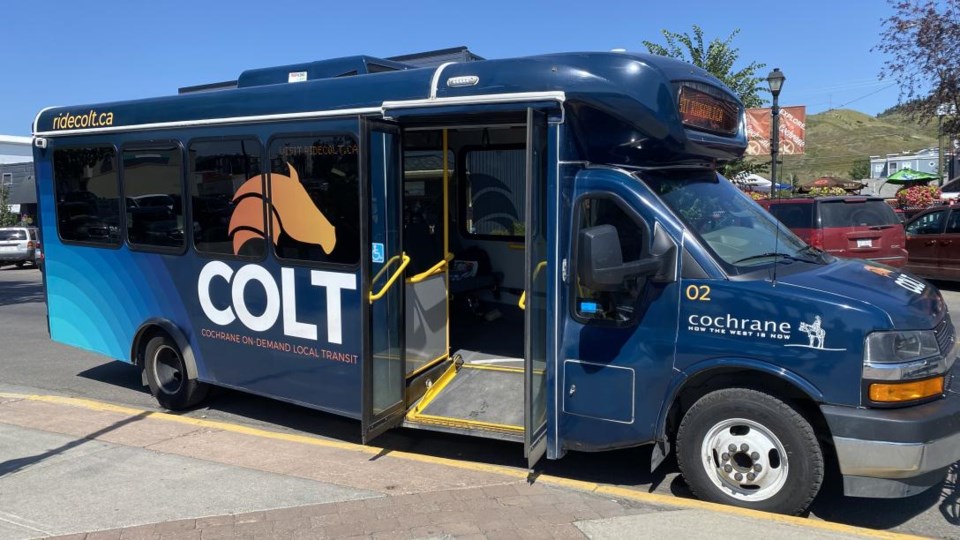The Town of Cochrane has completed its exhaustive survey effort surrounding the future of the COLT transit system, marked by the release of the results of the second phase of the public engagement at the Committee of the Whole meeting Oct.7.
Administration provided an update on the transit study, which has laid the groundwork for an updated COLT network design. The study gathered system data and feedback from two rounds of community engagement, which reached over 1,200 residents.
The What We Heard report demonstrated that 71 per cent of respondents supported modest tax and fare increases for enhancements like more buses, longer hours and Sunday service. The next step in COLT's evolution is a hybrid model of fixed routes and on-demand service.
Currently, COLT is largely funded by property taxes. The Town of Cochrane spends 1.4 per cent of its budget on public transportation, including COLT and Rocky View Paratransit. The public transit budget represents approximately $56 per year of property taxes on the average home in Cochrane, of which approximately $41 funds COLT services directly.
Currently, the fare for a single ride on the COLT service $2.50, or $50 for an adult monthly pass. A modest increase in rider fares could look like an additional $1 per trip, which translates to approximately a 33 per cent fare increase.
On October 15th, administration was scheduled to present transit scenarios and the budget impacts to each scenario and associated service level for Council’s consideration. Once approved, a draft of the detailed service design and implementation plan will be presented.
Key findings highlighted the need for enhanced reliability, safety, and accessibility, with frequency of service being the top priority.
The second round of public engagement involved over 200 residents, and was concluded on Sept. 16. Through surveys and focus groups, community members were asked to prioritize key transit service objectives, evaluate funding models, and suggest improvements. Key themes from the engagement included enhancing service reliability, expanding operational hours, and considering fixed-route options to complement the existing on-demand model.
Summary of the key findings
Improving the reliability and usefulness of the service was the top priority for 70 per cent of survey respondents. Safe, age-friendly, and accessible travel was also a concern. The financial sustainability of the service was identified as important but ranked lower than that of operational improvements.
Network Design: Frequency of service was the most valued principle (45 per cent), followed by coverage and span of service hours. Participants expressed frustration with current booking challenges and supported transitioning to some fixed routes to improve reliability.
Funding: 71 per cent of respondents supported modest property taxes and rider fares increases to enhance service. The most popular investment priorities included adding buses during peak times, extending service hours, and introducing Sunday service.
The report highlighted some selected responses, such as:
“The service is not without its issues, however. Chiefly among them is a significant lack of capacity to book trips. Preliminary analysis indicates that over 40 per cent of transit riders have experienced a situation in which they were unable to book a ride. Overall, over ¼ of requested trips go unfulfilled as a result of capacity constraints.”
Another respondent stated: “Using the app is difficult for seniors. Having to plan a route to your destination but also try to see when you can take transit back is difficult - eg want to go to Spray Lakes but need to plan my departure according to what is available for return trip. Important to just have a schedule that someone can quickly look up.”
At the Oct. 15 regular meeting Council decided to defer debating future transit service levels so it now will become part of the overall 2025 budget discussions in November.




